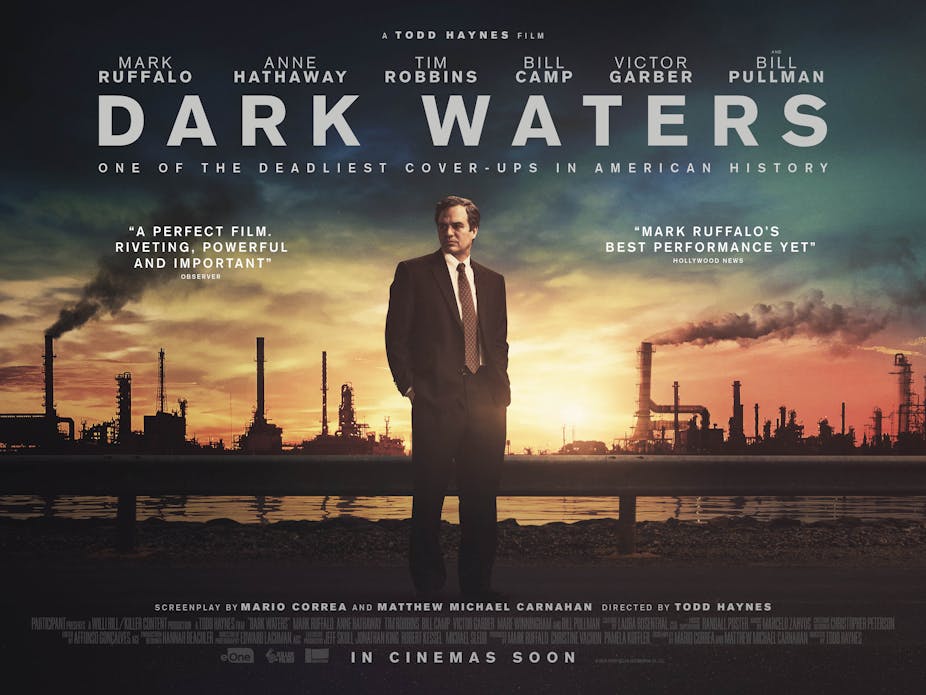==SOLD OUT==
We have an exclusive preview film screening for readers of The Conversation of Dark Waters, the shocking true story of a corporate lawyer who risks his career and family to uncover one of the biggest corporate cover ups of all time and bring justice bring justice to a community dangerously exposed for decades to deadly chemicals. The screening is at 18:30 on Tuesday February 25th at Dolby Cinema in central London, with a drinks reception from 18:00.
Directed by Todd Haynes (Carol, Far from Heaven), Dark Waters (12A) follows corporate environmental defense attorney Rob Bilott (Mark Ruffalo), who finds himself conflicted after he’s contacted by two West Virginia farmers who believe that the local DuPont plant is dumping toxic waste in the area landfill that is destroying their fields and killing their cattle. He files a complaint that marks the beginning of an epic 15-year fight — one that will not only test his relationship with his wife, Sarah (Anne Hathaway) but also his reputation, his health and his livelihood.
The screening will include a drinks reception and Q&A hosted by Conversation editor, Josephine Lethbridge, with chemist Mark Lorch, global systems expert James Dyke, science policy expert Melanie Smallman, and a representative from Fidra, an evidence-based environmental charity who’ve recently released a report on PFAS (the substance of question in the film) in UK food packaging.
The event is free and the screening is an opportunity for you to see the film before it lands in UK cinemas – and to put your questions to the panel about the widespread chemical pollution that affects us all.
Dark Waters is released in UK cinemas nationwide on February 28th 2020.
As not everyone who asks for tickets uses them we send out a few more tickets than there are places. This means that admission is on a first come first served basis and is not guaranteed.

